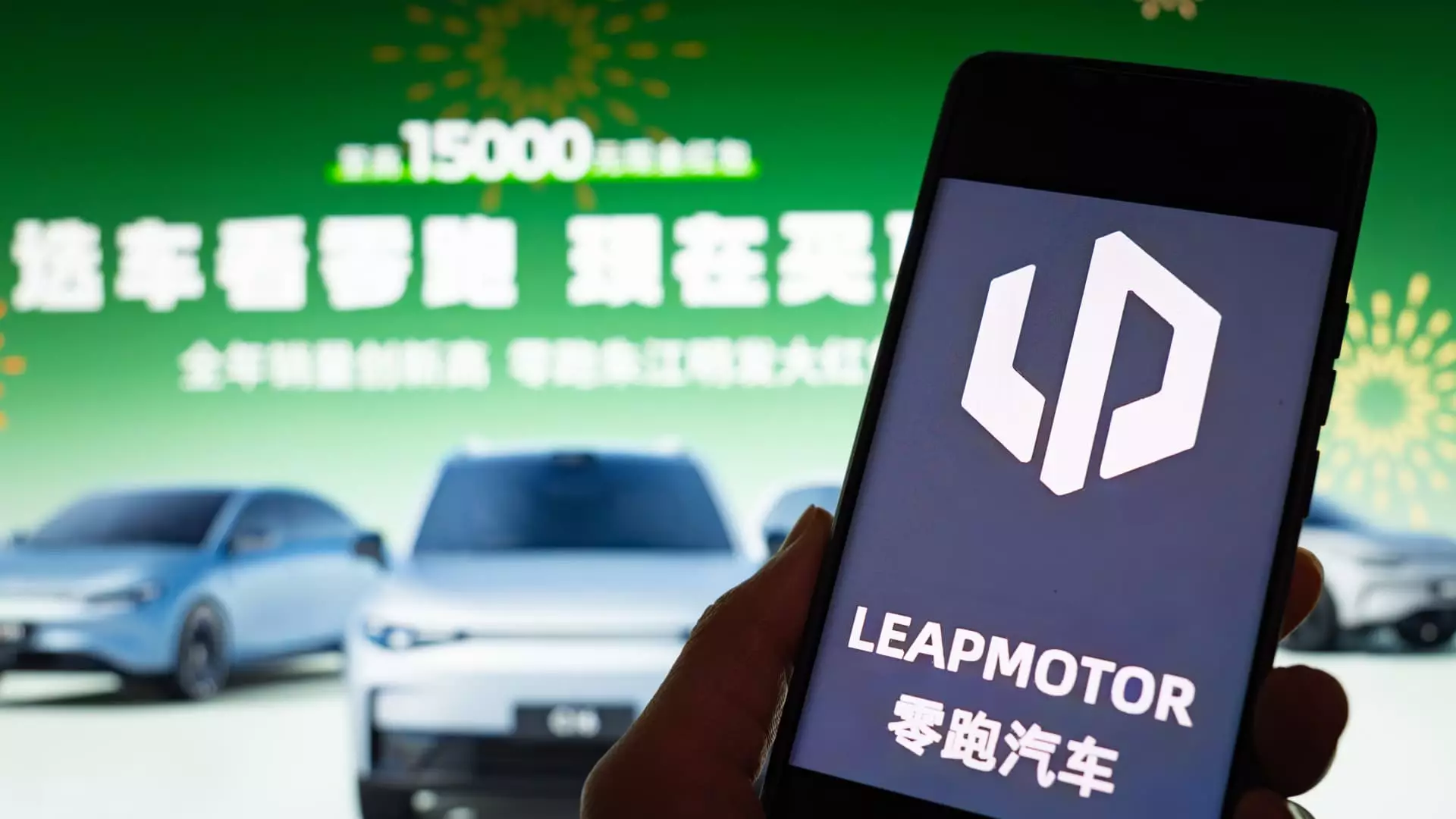In the dynamic landscape of the electric vehicle (EV) market, Chinese manufacturers have started to carve out their territory with astonishing delivery numbers. In May, Leapmotor shattered its own records, delivering an impressive 45,067 vehicles. This staggering figure marked a monumental 148% leap in growth compared to the previous year. The recent unveiling of Leapmotor’s revamped C10 model, a mid-sized SUV priced attractively at approximately $17,045, has seemingly resonated with consumers, leading to over 13,000 units sold in a single month. This launch exemplifies how product innovation can drive up demand while stimulating aggressive competition within the industry.
On a similar note, Aito, backed by Seres, proudly proclaimed a new milestone with 44,454 vehicles shipped in May. Aito’s incorporation of Huawei technology into its production has given the brand a distinctive edge, further underscoring the importance of partnerships in the tech-influenced automotive space. The subsequent debut of the Maextro S800, an extravagant sedan priced at around $99,100, signals Aito’s ambition to tap into the luxurious segment of the market, pushing boundaries that other startups might find daunting.
BYD: The Goliath in an Evolving Marketplace
Despite the frenzy of new players emerging on the scene, industry behemoth BYD remains unparalleled in its ability to dominate EV sales. Surpassing all competitors, BYD sold a staggering 376,930 cars in May alone, reflecting a significant 14.1% year-on-year rise for the company. Recent strategic price cuts on 22 models, which pushed the price of its Seagull hatchback down by 20%, not only enhanced accessibility for consumers but also precipitated a tumultuous reaction in the stock market, leading to falling shares for many rivals. Critics have raised questions about potential pressure tactics employed by BYD on its dealers over cash flow, yet the company has robustly denied these allegations, shedding light on the underlying tensions in this fiercely competitive environment.
Moreover, the market’s rapid evolution has raised legitimate concerns reminiscent of past crises, particularly regarding the sustainability of this price war. Many industry watchers fear that the cutthroat tactics could lead to a scenario similar to that of Evergrande, the once-mighty real estate player that collapsed under unsustainable debt, thereby throwing the EV sector’s future into uncertainty.
Emerging Players: Growth and Challenges
Other startups are navigating the turbulent waters of this competitive market with varying degrees of success. Xpeng, for instance, reported a slight drop in May deliveries to 33,525 vehicles but celebrated a remarkable 230% year-on-year growth overall. With their recent launch of new models like the Mona M03 Max, priced at over $18,000, they demonstrate innovation that aligns with consumer interest, contributing to a consistent performance of more than 30,000 vehicles delivered for seven months running.
Meanwhile, Xiaomi, initially recognized for its smartphones, managed to mirror last month’s strong delivery figure with over 28,000 vehicles sold in May. The anticipation building around their upcoming luxury SUV model highlights the competitive spirit among tech companies eager to make their mark in the EV sector.
However, not all players are thriving. Li Auto delivered 40,856 vehicles, reflecting a more modest growth of 16.7% year-on-year, while Zeekr’s deliveries reached only 18,908—a marginal increase of just 1.6%. Despite their attempts to position themselves uniquely with features like free driver-assistance technology, Zeekr’s slow growth reveals challenges in gaining market traction in an oversaturated landscape.
Nio, another well-known brand, faced a decline in deliveries compared to previous months, with total vehicles shipped dropping to 23,231. Concerns are emerging regarding their long-term strategies, as their family-oriented brand, Onvo, pulled in some impressive figures but still contributed to a broader decline in performance.
Strategies for Market Expansion and Future Outlook
As competition intensifies, Chinese EV manufacturers are increasingly looking beyond domestic markets. Targeting emerging markets could provide a lifeline amid potential uncertainties linked to tariffs imposed by the European Union and U.S., slowing their expansion into Western territories. With BYD already making inroads into nations like Benin, it will be intriguing to see how strategies evolve as these companies push towards international growth—especially in Africa, which offers burgeoning markets ripe for innovative electric vehicle solutions.
Overall, as Chinese electric carmakers continue to assert themselves across diverse segments, their adaptability and strategic foresight will play a pivotal role in determining their success against the backdrop of overwhelming competition and shifting consumer preferences.


Leave a Reply